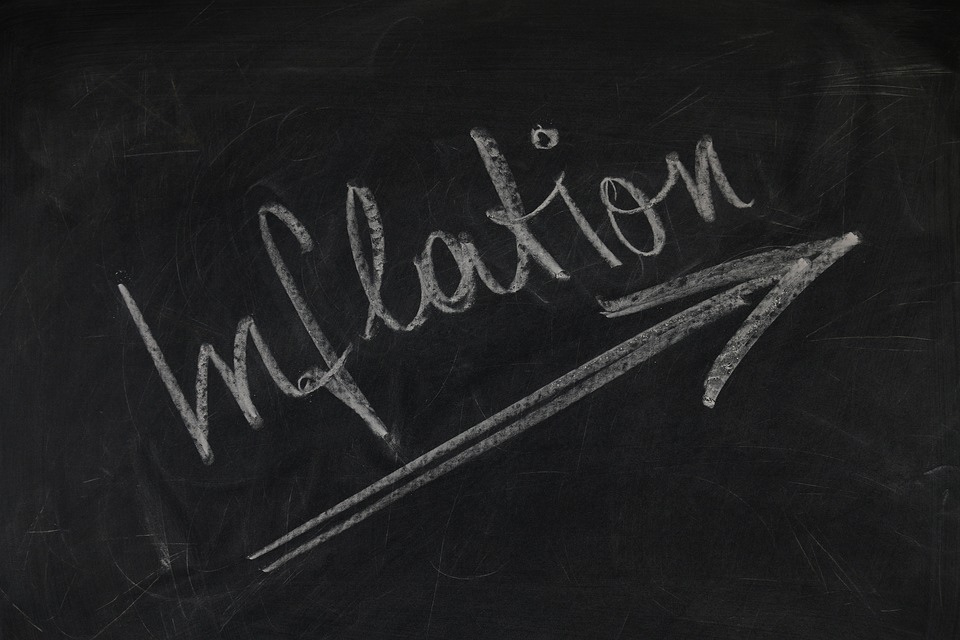Inflation, Interest Rates, and Your Savings: What You Need to Know to Stay Ahead
As an individual, managing your finances is crucial to achieving your long-term goals. However, economic fluctuations can significantly impact your savings and investments. Two major economic factors that can have a significant impact on your personal finance are inflation and interest rates. In this article, we will delve into the world of inflation, interest rates, and their effects on your savings, providing you with valuable insights to stay ahead.
What is Inflation?
Inflation is the sustained increase in the general price level of goods and services in an economy over a period of time. It’s measured as an annual percentage change in the Consumer Price Index (CPI). When there is inflation, the same amount of money can buy fewer goods and services than it could in the past. For instance, if inflation is 2%, a good or service that cost $100 last year would now cost $102. This means that the purchasing power of your money decreases over time.
What is the Impact of Inflation on Your Savings?
Inflation can have a significant impact on your savings. When inflation rises, the value of your money decreases, and the purchasing power of your savings decreases as well. Here are a few ways inflation can affect your savings:
- Reduced Purchasing Power: As mentioned earlier, inflation can erode the value of your money, reducing the purchasing power of your savings.
- Depreciation of Fixed Income: If you rely on a fixed income, such as a pension or annuity, inflation can reduce its purchasing power over time.
- Increased Expenses: As prices rise, your expenses increase, which can reduce your ability to save and invest.
What is an Interest Rate?
An interest rate is the percentage rate at which interest is paid on an investment, such as a savings account, certificate of deposit (CD), or bond. Interest rates can be influenced by central banks, governments, and financial institutions.
How do Interest Rates Affect Your Savings?
Interest rates can have a significant impact on your savings, particularly when it comes to investments. Here are a few ways interest rates can affect your savings:
- Higher Interest Rates: When interest rates rise, it can make borrowing more expensive, which can have a positive impact on your savings. Higher interest rates can also boost the economy, as people are more likely to invest and spend.
- Lower Interest Rates: When interest rates fall, it can make borrowing cheaper, which can lead to increased spending and consumption. However, low interest rates can also reduce the return on your savings, making it challenging to keep up with inflation.
Understanding the Relationship between Inflation and Interest Rates
Inflation and interest rates are connected in complex ways. When there is high inflation, interest rates tend to rise to combat the increased money supply and slow down the economy. Conversely, low interest rates can lead to increased borrowing and spending, which can fuel inflation.
How to Stay Ahead of Inflation and Interest Rate Fluctuations
- Diversify Your Investments: Spread your investments across various asset classes, such as stocks, bonds, and real estate, to reduce the impact of inflation and interest rate fluctuations.
- Choose Inflation-Beating Investments: Certain investments, such as index funds, commodities, and precious metals, can perform well during periods of high inflation.
- Keep an Emergency Fund: Maintain an easily accessible savings account to help you weather unexpected expenses and to take advantage of investment opportunities that arise.
- Stay Educated: Stay informed about economic developments, and adjust your investment strategy accordingly.
Conclusion
In conclusion, inflation and interest rates can have a significant impact on your savings. Understanding the relationship between these two economic factors is crucial to making informed financial decisions. By diversifying your investments, choosing inflation-beating investments, and maintaining an emergency fund, you can stay ahead of these economic fluctuations.
FAQs
Q: What is the ideal interest rate for savings?
A: The ideal interest rate for savings depends on your financial goals, time horizon, and risk tolerance. Generally, a high-yield savings account or a short-term CD can offer a competitive interest rate.
Q: How do I know if I’m saving enough for inflation?
A: Consider setting aside 10-20% of your income for emergencies and long-term goals. You can also consider inflation-indexed instruments, such as TIPS (Treasury Inflation-Protected Securities), to help keep pace with inflation.
Q: Can I save for retirement in a high-inflation environment?
A: Yes, you can save for retirement in a high-inflation environment by:
- Investing in assets that perform well during periods of high inflation, such as real estate or commodities
- Diversifying your portfolio to reduce exposure to any one asset class
- Considering inflation-indexed retirement accounts, such as TIPS or inflation-indexed annuities
Remember, staying ahead of inflation and interest rate fluctuations requires a well-planned and diversified investment strategy. By understanding the complex relationship between these two economic factors, you can make informed decisions to achieve your long-term financial goals.

Leave a Reply